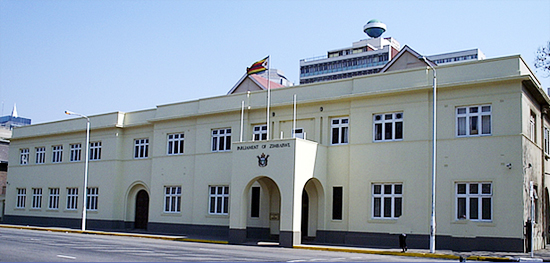A Harare resident has petitioned Parliament to allow members of the public to recall elected politicians for non-performance rather than political parties.
Claud Kaharo of Budiriro contends that once a member of parliament is elected, the electorate is effectively disenfranchised as only the political party on whose ticket they were elected can recall them.
This petition comes after the MDC-T, led by Douglas Mwonzora, recalled scores of elected MPs and councillors since 2020, accusing them of supporting political rival Nelson Chamisa.
“If we really want to make our democracy work, non-performers must be shown the door they must perform to the expectation of those who would have elected them, failure to do that they must be recalled,” read Kaharo’s petition.
“As the voting public, we must have the right to vote for our representatives to council and parliament and also have the right to recall them if they are inept and not to wait for five years while they continue to do lots of damage.”
However, when Kaharo appeared before the Portfolio Committee on Justice, Legal, and Parliamentary Affairs on Thursday, they inquired if he was requesting a constitutional amendment because Section 129 (k) of Zimbabwe’s constitution states that political parties can recall an elected official.
Section 129 (k) reads: “If a Member has ceased to belong to the political party of which he or she was a member when elected to Parliament and the political party concerned, by written notice to the Speaker or the President of the Senate, as the case may be, has declared that the Member has ceased to belong to it”
Members of the Portfolio Committee on Justice, Legal and Parliamentary Affairs also questioned Kaharo on safeguards that can be put in place to ensure that the public does not arbitrarily recall elected people “as revenge” for their preferred candidates losing.
The petitioner was advised to rethink his petition as he said his plea was for Parliament to enact a law “as a matter of urgency” and had not thought of having a constitutional amendment.
“This will be a worthwhile investment for the present and future generations of Zimbabwe. It would be helpful to establish a Constituencies Inspectorate to be the highest body that monitors the performances of both members of parliament and councillors,” Kaharo said.
He noted that the Constituencies Inspectorate should monitor manifestos of elected candidates, set time for performance review and go back to the people in the constituency to find out what they think about the performance of their representatives
“The elected Members of Parliament and Councillors must also be in a position to go to the inspectorate body when they are facing challenges in the execution of their duties so that a way to solve them can be found.
“In the event that the constituency is not happy with the performance of their elected officials, they should have the power to recall them as the voters and not the party on whose ticket they were voted into council or parliament. When one is a councillor or member of parliament, they are representing everyone, those who voted for them and those who did not,” read the petition.
Kaharo also proposed that when the recall is actioned, a particular percentage of the entire number of votes cast must vote.
Meanwhile, Kaharo’s petition stated there are countries which have introduced such legislation to give the electorate power to recall members of parliament and cited the United Kingdom, which enacted the recall of MPs Act 2015 (25).
“It received royal assent on March 26, 2015 after it was introduced on September 15, 2014. For a recall petition to be successful 10 percent of eligible registered voters need to sign the petition. If the 10 percent threshold is reached the petition officer informs the speaker of the house on the giving of that notice the seat becomes vacant,” read the petition.
“A by-election is then required. The recalled MP may stand as a candidate, the timing of UK Parliamentary by-election is determined by custom of the House of Commons: the party that previously held the seat will usually decide when to trigger the by-election if the 10 percent threshold is not reached the recall fails and the MP retains their seat.”

